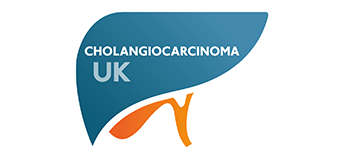Current trials no longer recruiting
RXC004 (PORCUPINE2)
A Study to Assess RXC004 Efficacy in Advanced Solid Tumours After Progression on Standard of Care (SoC) Therapy (PORCUPINE2) (KEYNOTE-E86).
Recruitment to the PORCUPINE2 trial is now complete, and no further new patients will be enrolled to this study.
For further information see:
https://clinicaltrials.gov/ct2/show/study/ NCT04907851
TOPAZ-1
Update January 2022: A press release from AstraZeneca now confirms the outcome of the Phase III trial, TOPAZ-1, that the immunotherapy durvalumab (Imfinzi) in combination with the standard of care 1st line treatment chemotherapies gemcitabine and cisplatin, shows “a statistically significant and clinically meaningful improvement in overall survival and progression-free survival” compared with gemcitabine and cisplatin alone. To read this press release, go to: https://www.astrazeneca.com/content/astraz/media-centre/press-releases/2022/imfinzi-plus-chemotherapy-reduced-risk-of-death-by-20-in-1st-line-advanced-biliary-tract-cancer.html
Update October 2021: “Imfinzi (durvalumab) plus chemotherapy significantly improved overall survival in 1st-line advanced biliary tract cancer in TOPAZ-1 Phase III trial at interim analysis”. To read AstraZeneca’s press release 15.10.2021, go to: https://www.astrazeneca.com/media-centre/press-releases/2021/imfinzi-improved-survival-in-biliary-tract-cancer.html
TOPAZ-1: Durvalumab or Placebo in Combination With Gemcitabine/Cisplatin in Patients With 1st Line Advanced Biliary Tract Cancer.
For more details on TOPAZ-1, go to: https://www.clinicaltrials.gov/ct2/show/NCT03875235
ACTICCA-1
Update December 2022: This trial is active but, as the total number of patients to be recruited has been met, it has now closed to further recruitment.
Following the outcome of the BILCAP study, those who have undergone a resection for their cholangiocarcinoma or gall bladder cancer, and who fit the eligibility criteria, are now offered Capecitabine chemotherapy as the standard of care.
The ACTICCA-1 trial is a randomised Phase III trial which looks to compare Gemcitabine and Cisplatin against Capecitabine alone (currently the standard treatment) for those who have had a resection for their cholangiocarcinoma or gall bladder cancer:
“Adjuvant Chemotherapy with Gemcitabine and Cisplatin compared to Capecitabine (standard treatment) after Curative Intent Resection of Cholangiocarcinoma and Muscle Invasive Gall Bladder Carcinoma”
Read MoreTAS-120-202
As of October 2022 the phase 2 study of Futibatinib in Patients With Specific FGFR Aberrations remains active but is no longer recruiting
Study TAS-120-202 is an open-label, multinational, 3-arm Phase 2 study evaluating the efficacy, safety, tolerability, PK, and pharmacodynamics of futibatinib in patients with FGFR aberrations. Eligible patients will be assigned to 1 of 3 treatment cohorts based on diagnosis and FGFR gene aberration status.
For more information, please see: https://clinicaltrials.gov/ct2/show/NCT04189445
HERIZON-BTC-01
Update 28 April, 2022. Zymeworks have announced that as enrolment to the HERIZON-BTC-01 trial has completed, the trial is now closed to recruitment. It is expected that efficacy and safety results will be available early 2023. To read the Zymeworks’ press release, click here.
A Phase 2b, Open-label, Single-arm Study of Zanidatamab ZW25 Monotherapy in Subjects With Advanced or Metastatic HER2-amplified Biliary Tract Cancers
HERIZON-BTC-01 is a global Phase 2b study of Zanidatamab (also known as ZW25) for the treatment of patients with advanced or metastatic HER2-amplified biliary tract cancers, including intrahepatic and extrahepatic cholangiocarcinoma, and gallbladder cancer.
Expanded Access/Compassionate Use Program
Zanidatamab (also known as ZW25) is available at a number of UK and European hospitals for eligible CCA patients under an Expanded Access/Compassionate Use Program. Interested patients should first speak with their oncologist, who should then email a request to: Zymeworks.EAP@earlyaccesscare.com
Oncologists please note: When submitting a request to the Expanded Access/Compassionate Use Program, Zymeworks ask that the patient’s name or other identifying information is excluded.
More information
For more information on “An Expanded Access Treatment Protocol of Zanidatamab (ZW25) in Patients With HER2-Positive Advanced Solid Tumors” go to: https://clinicaltrials.gov/ct2/show/NCT04578444
For more information on the Expanded Access Programs run by Zymeworks, go to: https://www.zymeworks.com/patients/expanded-access-program
ABC-07 (SBRT)
Update August 2022: This trial is active but is no longer recruiting patients.
ABC-07 is a randomised trial for those with locally advanced cholangiocarcinoma. All patients begin by receiving Gemcitabine/Cisplatin chemotherapy and, after 6 cycles of chemotherapy, are then randomised to continuing with the chemotherapy or receiving SBRT (stereotactic body radiotherapy)*
* SBRT (stereotactic body radiotherapy) is a way of targeting radiotherapy beams very precisely at a tumour from many different directions. LINAC or Cyberknife machines may be used to deliver SBRT, depending on the equipment available in a particular hospital.
Read MoreABC-09 (EORTC-1607-GITCG)
Update September 2021: This trial remains active but is no longer recruiting.
A first line Phase II trial for inoperable, recurrent and metastatic cholangiocarcinoma (intra- and extrahepatic) and gall bladder cancer patients.
This will be a single arm study of first line Pembrolizumab and Gemcitabine/Cisplatin.
All patients on this trial will receive the immunotherapy drug Pembrolizumab in addition to the Gemcitabine/Cisplatin chemotherapy.
Read MoreIgnyta STARTRK-2
Update June 2022: This trial remains active but is no longer recruiting in the UK.
STARTRK-2 is an open-label, global, Phase 2 basket study of entrectinib (RXDX-101) for the treatment of patients with locally advanced or metastatic solid tumours, and is currently recruiting in 3 centres in the UK.
Cholangiocarcinoma patients would be screened for an NTRK1, NTRK2, NTRK3, ROS1, or ALK gene rearrangement.
Read MoreFIGHT-207
Update June 2022: Terminated (A business decision was made to discontinue further enrolment. There were no safety concerns that contributed to this decision.)
FIGHT-207 is a study to evaluate the efficacy and safety of pemigatinib in those with activating FGFR mutations or translocations.
Full title: Efficacy and Safety of Pemigatinib in Previously Treated Locally Advanced/Metastatic or Surgically Unresectable Solid Tumor Malignancies Harboring Activating FGFR Mutations or Translocations (FIGHT-207)
Read MoreNuTide:121
Update 02 March 2022:
NuCana’s NuTide:121 Trial for those with advanced biliary tract cancer is stopped.
Independent data monitoring committee recommended study be discontinued following futility assessment conducted at first interim analysis. To see NuCana’s press release, go to: https://ir.nucana.com/news-releases/news-release-details/nucana-announces-update-phase-3-biliary-tract-cancer-study
NuTide:121 will compare NUC-1031 Plus Cisplatin to Gemcitabine Plus Cisplatin in Patients with Advanced Biliary Tract Cancer.
The study opened to recruitment in December 2019 and will enrol up to 828 patients globally. There will be a number of UK sites be participating.
(The NUC-1031 Plus Cisplatin combination was developed through the UK ABC-08 study)
Read MoreKEYNOTE-966
Update September 2021: This trial is active but no longer recruiting patients.
Phase 3 KEYNOTE-966 Trial: Pembrolizumab in Combination with Gemcitabine and Cisplatin for the Treatment of Advanced Biliary Tract Cancer.
This immunotherapy study is a global study of a first-line treatment for patients with advanced disease (metastatic or unresectable) and is randomised pembrolizumab (or placebo) alongside cisplatin and gemcitabine in all patients.
For more details on the trial, see: NCT04003636
INTR@PID BTC 055
Update August 2021: The Phase II INTR@PID BTC 055 study from Merck has been discontinued.
Gemcitabine Plus Cisplatin with or without Bintrafusp Alfa (M7824) in Participants with 1L Biliary Tract Cancer (BTC)
Based on a review of data conducted by the Independent Data Monitoring Committee (IDMC), Merck has decided to discontinue the Phase II INTR@PID BTC 055 study evaluating bintrafusp alfa with gemcitabine plus cisplatin in the first-line treatment of patients with locally advanced or metastatic biliary tract cancer (BTC).
To read more, go to: https://www.merckgroup.com/en/news/bintrafusp-alfa-update-23-08-2021.html
For more details on the trial see: NCT04066491
PCI and Chemotherapy
Update April 2019: This small trial, using PCI (photochemical internalisation) with Gemcitabine in addition to ‘standard of care’ with 8 cycles of Gemcitabine and Cisplatin, for those patients with advanced, inoperable cholangiocarcinoma (stented), closed to recruitment on 24 April, 2019. Results are awaited.
“Phase I/II Dose Escalation Study to Assess the Safety, Tolerability and Efficacy of PCI of Gemcitabine Followed by Gemcitabine/Cisplatin Chemotherapy in Patients With Advanced Inoperable Cholangiocarcinomas”
Read MoreSIRCCA
Update October 2019: The SIRCCA trial, a 1st line randomised trial for those with inoperable intrahepatic cholangiocarcinoma, looking at the standard treatment of Gemcitabine and Cisplatin chemotherapy, vs SIRT (selective internal radiation therapy)* preceding the Gemcitabine and Cisplatin chemotherapy, has now closed to recruitment. Results are expected early 2021.
* SIRT (selective internal radiation therapy) can be used to treat bile duct cancers in the liver. Millions of tiny beads, or microspheres, are fed into the hepatic artery, the main blood vessel which supplies the liver. These beads block the supply of blood to the cancer and, as they contain a radioactive substance called yttrrium-90, they also work by sending out radiation which helps to kill off the cancer cells. (This treatment is also known as radioembolisation.)
Read MoreTAS120-101
Update November 2019: This international Phase I/II trial for those patients who have FGF/FGFR gene abnormalities in their tumour, and for whom there are no other available therapies, closed to recruitment on 30 November 2019. Data is currently maturing and results are awaited.
“A Dose Finding Study Followed by a Safety and Efficacy Study in Patients With Advanced Solid Tumors or Multiple Myeloma With FGF/FGFR-Related Abnormalities”
Read MoreABC-06 (2nd line chemotherapy trial)
Update June 2019: The ABC-06 study, a randomized trial for those with advanced or metastatic cholangiocarcinoma who have already received first line treatment with the combination Gemcitabine/Cisplatin chemotherapy, met its recruitment target of 162 patients on 5th January, 2018.
The initial results of the trial were presented at the prestigious international ASCO conference in Chicago in early June 2019, and the treatment given under the ABC-06 trial, mFOLFOX, now looks set to become the new global 2nd line standard of care.
For more information on the ABC-06 study and the important outcome, click the Read More button.
Read MoreAgios ClarIDHy
Update May 2019: Agios has announced that the randomized Phase 3 ClarIDHy trial of TIBSOVO® (ivosidenib) achieved its primary endpoint in previously treated IDH1 mutant cholangiocarcinoma patients.
Treatment with TIBSOVO® demonstrated a statistically significant improvement in progression-free survival (PFS) by independent radiology review compared with patients who received placebo. The safety profile observed in the study was consistent with previously published data.
Further details can be found in the press release from Agios, available here.
ABC-08
Update: The ABC-08 trial has met its recruitment target and is no longer recruiting new patients. More information on a new Acelarin Biliary study will be available shortly.
(Acelarin developed by NuCana)
ABC-08 is a single arm trial for those with inoperable or recurrent/metastatic cholangiocarcinoma, gallbladder or ampullary carcinoma. All patients will receive Cisplatin chemotherapy and Acelarin.
The results of the ABC-02 trial established the Gemcitabine and Cisplatin combination of chemotherapy as the first line treatment standard of care for inoperable cholangiocarcinoma patients. In this trial, Acelarin, a drug designed to specifically overcome the key cancer resistance mechanisms associated with Gemcitabine, will be used in combination with Cisplatin.
Read MoreIncyte INCB054828
Update August 2018: The Incyte INCB054828 trial is no longer recruiting new patients.
This is a Phase 2, open-label, single-arm, multicentre international study to evaluate the efficacy and safety of the drug INCB054828 in patients with Advanced/Metastatic or Surgically Unresectable Cholangiocarcinoma, including FGFR2 translocations, who failed previous therapy.
Read MoreBack to previous page







